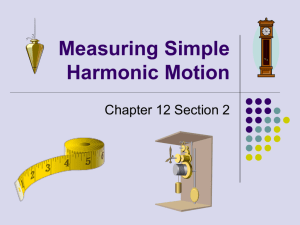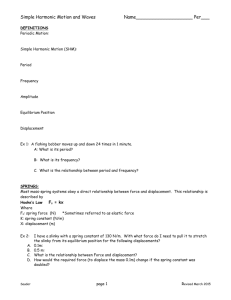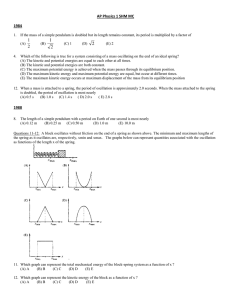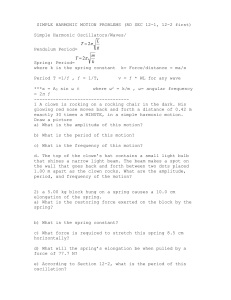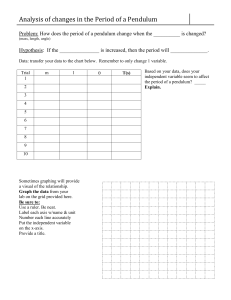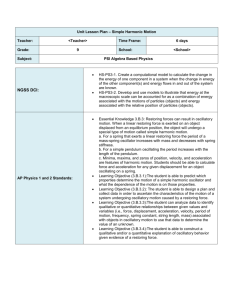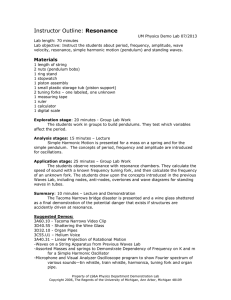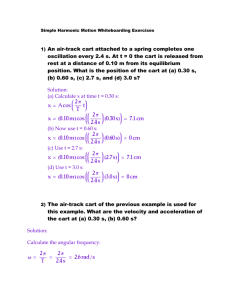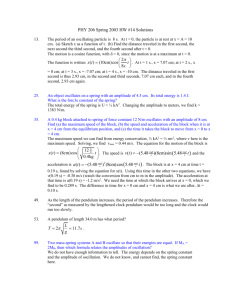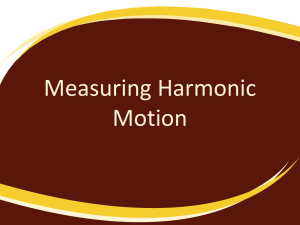Periodic & Simple Harmonic Motion: Physics Concepts
advertisement
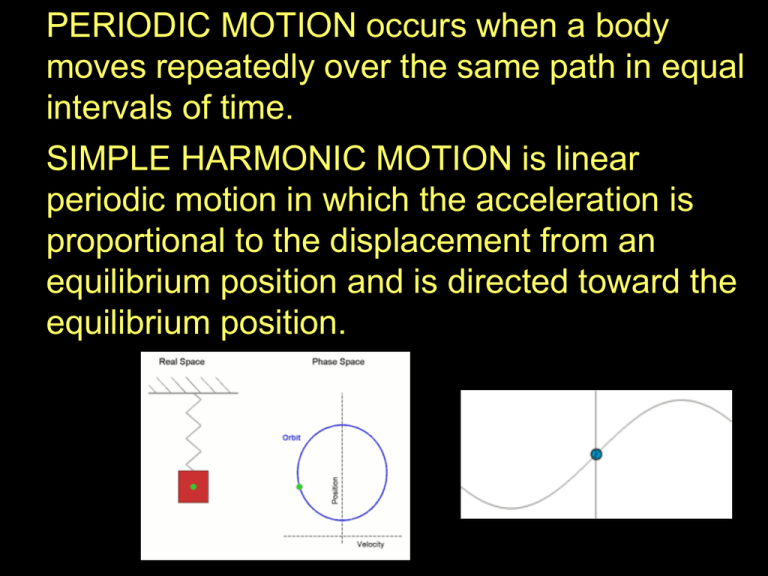
PERIODIC MOTION occurs when a body moves repeatedly over the same path in equal intervals of time. SIMPLE HARMONIC MOTION is linear periodic motion in which the acceleration is proportional to the displacement from an equilibrium position and is directed toward the equilibrium position. Displacement – distance from equilibrium Equilibrium position – midpoint of path Amplitude – maximum displacement Period – time for one complete cycle Frequency – inverse of period (Hz = cycles / second) mass–spring system T = 2π√(m / k) T = period in seconds m = mass in kg k = spring constant (N/m) SIMPLE PENDULUMS can be examples of simple harmonic motion. (Mass of string must be negligible compared to the mass of the bob.) 1.Period of pendulum is independent of mass and material of the pendulum. 2.If the arc is 15º or less, the period of the pendulum is independent of amplitude. 3.The period of a pendulum is proportional to the square root of its length. 4.The period of a pendulum is inversely proportional to the square root of the acceleration due to gravity. SIMPLE PENDULUM T = 2π√(l / g) T = period in seconds l = length of pendulum in meters g = acceleration due to gravity (m/s2) Daily Challenge, 9/30 A pendulum is in a spacecraft to measure the acceleration during liftoff. Before the launch, its period is 6.7 x 10-3 s. At a certain point during liftoff, its frequency is 3.2 x 102 Hz. How many “g’s” are the astronauts in the spacecraft experiencing at that point? Lab Notebook due Monday Set up your slinky similarly to the set up for measuring the spring constant. Mount a small mass to the slinky and start it oscillating. Use the Vernier equipment to monitor both the force acting in the spring and the motion of the mass. Does this motion qualify as simple harmonic motion? Be sure to determine graphically and quantitatively if the force and acceleration are directly proportional to displacement. Optional addition (extra credit) to the lab: Determine the period of the oscillation. Use it to calculate the spring constant of the spring. Does it match your original measurements? Explain.
